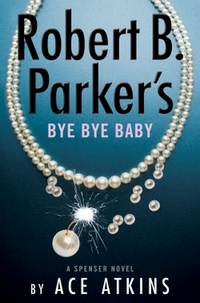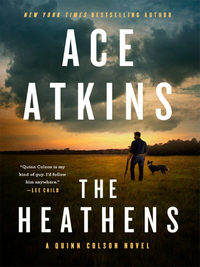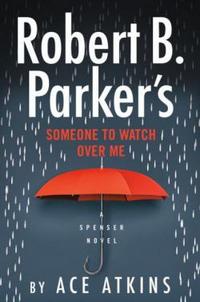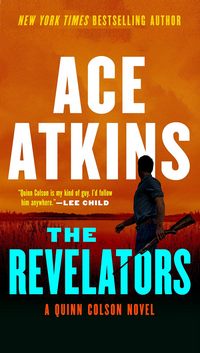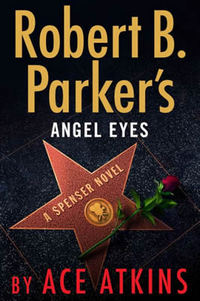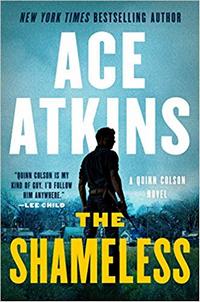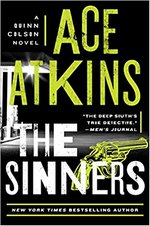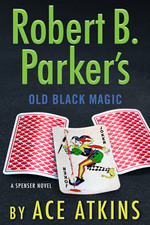Believe it or not, this is the trimmed-down version. The original draft was too long even for me, so I tabled it for a week or so and came back with something more concise. More concise, I said, not concise. Hopefully coherent.

It was early evening and early summer, and my bay window was cracked open above Berkeley Street. I had a half-eaten turkey sub on my desk and the sports page from The Globe splayed out underneath. Dan Shaughnessy proclaimed Mookie Betts to be overrated. I’m sure many said the same thing about me. But I was pretty sure being overrated was better than being underrated. A mistake few made twice.
I contemplated Mookie’s situation as I heard a knock on the anteroom door.
And just like that, I’m back in one of my favorite fictional universes, and it felt so great. Among the many, many things wrong with 2020 (and I want to stress that this is far down the list) was that there was no new Spenser novel. Thankfully, Atkins and his publisher have addressed that problem here in the early days of 2021 by bringing us the 48th entry in this fantastic series.
It All Starts with a Favor…
Mattie Sullivan, who’s been doing some work for Spenser lately, tried to do a favor for someone from her neighborhood, and now needs Spenser to help her. It’s a pretty simple task, but the story behind it is troubling. It doesn’t go much better for Spenser than it went for Mattie, but once he starts to ask questions, he ends up pulling the proverbial thread that unravels a sweater. And by “sweater”, I’m referring to an international sex-trafficking ring catering to the wealthy and powerful who like to prey on the young.
Yeah, basically, Atkins is going for a ripped-from-the-headlines Jeffrey Epstein kind of story.
Mattie Sullivan
One of my few complaints with the Spenser novels by Atkins is that he hasn’t used Mattie Sullivan since his first one, Lullaby. There’ve been a reference or two, but that’s it. But I got the impression that, like Zebulon Sixkill or Paul Giacomin, Mattie’d be around. But it never materialized. That’s fine. I get where (especially as Atkins was establishing himself) that there’d be some resistance to bringing in a young girl as a regular—it’d be tantamount to introducing Cousin Oliver.
But she’s here, and we’re to believe she’s been a presence in his life, and he in hers. More importantly, she needs a little help from her mentor. She’s on the verge of starting a career, and the way this works out will have a lot to say about her next steps.
Boston Homicide Captain Lorraine Glass
The Captain has been antagonistic toward Spenser since she showed up a few books back, a little more than Quirk was in the early books in the series. Sure, she’ll let Belson do his thing and will eventually listen to what Spenser has to say.
And that hasn’t changed. However…years ago, she tried to stop the same man. She worked with two victims, but the charges went away after someone (probably multiple someones) that he had leverage over had exerted their influence. Glass hasn’t gotten over it. If Spenser’s truly trying to bring him down, she’s in.
She doesn’t give a lot of help, but she gives some—and given what little Spenser has to work with it’s something. This doesn’t mean things are going to be chummy between Glass and Spenser any time soon. But it’s still nice to see.
Pearl Again, Naturally
On the backside, we found two cars parked outside. One was the Mercedes I’d seen drop off Debbie Delgado. The other was a light blue Rolls-Royce Phantom. Pearl and I noted the license tag on the Rolls. Or at least I hoped she did. She was still a detective-in-training.
Susan and Spenser’s second Pearl has died. This time, Spenser replaced her with a puppy German Shorthaired Pointer. I think I mentioned when Lupica’s first Sunny Randall had her do the same thing, I find the practice of replacing one dog with another of the same breed and using the same name odd (more than odd, but let’s stick with that). Susan seems to balk at the practice this time, which is odd. She seemingly had no problem with it for their second Pearl, but now she puts her foot down?
This does, however, provide Atkins with the opportunity to get Spenser to explain himself. I’m not sure that it helps. But at least he tried.
Still, Puppy Pearl is cute, so I’ll shut up about it.
Ruger? Really?
I feel bad bringing this up, but it’s right there in the Publisher’s description, so I guess it’s fair game. But Atkins brings back The Gray Man. I was stunned—almost as stunned as Spenser, Hawk, and Susan were—because I haven’t read a blurb for this series since Atkins’ first installment (and it had been probably decades before that).
I think it’s a risky move to bring someone like this back. You don’t want to use someone like Ruger too often. Once was probably enough, any more than that and you risk humanizing the character, making him seem less threatening, more mortal, more defeatable. I thought that when Parker did brought him back, and I think that now. Parker pulled it off. Atkins did it better. I love it when something so risky pays off.
Momento Mori
The three plane rides hadn’t been kind to me. I could feel every old break, bruise, and irregularity in my body. It had been eight years since I’d first met Mattie. Now she was a grown, successful person. And I was still doing what | do, none the wiser, not finding a better line of work. Maybe someday I’d retire to a place like this… Few get out of our livelihood by being politely asked. One day all the push-ups, wind sprints, and sparring wouldn’t save us. At this point in my life, I’d been doing this for many more years than I had not.
Both Ruger and the new Pearl (in different ways) make much of this book a meditation on mortality (Spenser’s in particular, while Hawk insists he “youthens”). This is something that Atkins has really highlighted in various ways since he took the helm, but not to this extent.
I don’t have time (or that much desire) to re-read it so I couldn’t say this definitively, but I don’t think Ruger’s second appearance brought with it this level of angst and apprehension on the part of Spenser, much less Hawk or Susan. But Atkins hits the notes that he should. The Grey Man about killed Spenser, reduced him to a shadow of the man we knew before, and he should make Spenser—reflexive confidence or not—fearful. As he should be. Because that’s the kind of guy that Ruger is, smart people are afraid of him. Smart people who’ve barely survived going up against him should really be afraid of him.
So, what did I think about Someone to Watch Over Me?
I loved it. I always enjoy being back in this world. Getting to see another part of Hawk’s life than we’ve ever seen before just makes it better.
I do wonder a little about what this novel says about Ceremony, the most problematic Spenser novel (still a good read, don’t get me wrong, but come on). I think Spenser’s actions and attitudes in this are defensible without casting doubt about what he did in Ceremony. And maybe it could be argued that Spenser’s attitudes changed after seeing what happened to April Kyle. I don’t think it’d be convincing, but maybe you could do that.
This gives the long-time fan plenty of stuff to think about, if they want to. There’s a decent amount for a new reader to chew on, too. But more than anything—it’s a solid Spenser novel written by the man who’s been keeping the legend alive for almost a decade, with hopefully many more years to come.

This post contains an affiliate link. If you purchase from it, I will get a small commission at no additional cost to you. As always, opinions are my own.

 The Havana Run
The Havana Run

![]()


